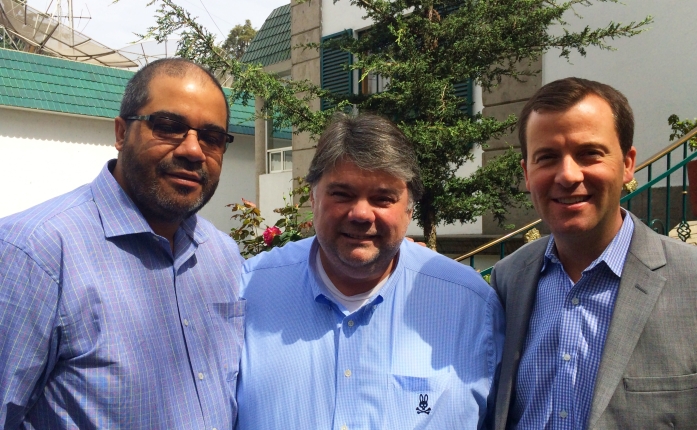
David Hall is one of the most sought after consultants in our industry. He specializes in news/talk programming, and his track record is stellar. He’s been the architect behind such powerful brands as KFI, KNX, and KABC in Los Angeles (to name a few). During his tenure at KFI, he was also instrumental in launching and developing the Bill Handel program and the John & Ken show. In 1994 he ventured into consulting with the launch of Talk Radio UK and TOK FM in Poland, the first free-opinion talk station in a former-communist country. In 2010 he left the daily programming of radio stations to work full-time on consulting stations. He now works with some of the biggest radio companies in the U.S., Latin America, and Europe.
We are excited to bring you David Hall as he shares with us his knowledge and wisdom from the always fascinating world of news/talk radio.
For many years you programmed and ran the day-to-day operations of some of the most influential news/talk stations in the LA market (KFI, KNX/KFWB, and KABC), while simultaneously consulting other stations. When and why did you decide to become a full-time consultant? And, in your opinion, what are the key differences between both jobs?
I first worked with the strategic process with a great consultant and a very good research team in 1984, and from that moment I was interested. I am one of those guys who started in radio as a little kid, but that was the first time I saw there is some science behind how people listen. The main difference is now it’s my job to make recommendations, while a PD or GM’s job is to make decisions. I respect that difference.
We have worked together for many years here in the U.S. and overseas, and you have always embraced research and what we do. What’s the importance of research and how do you implement it?
Research is the voice of the listener in the programming equation, pure and simple. So many people in radio sit in a little room in a comfy chair and Koss headphones and never think about the 28 year old young mom with a crying kid, an asshole boss, and an idiot husband who is hanging on his every word on the other side of the radio. Research puts the two together, to the delight of that listener and the success of that broadcaster.
You have a very hands-on approach and you work directly with different calibers of talent worldwide, which is no easy feat. What are some of most common challenges you find and how do you get talent to “buy in” into the process of changing and improving a show?
Every presenter walks a plank every show. They put themselves out there without a script, without a writers’ room, and usually with a team of one person on the other side of the glass. So first and foremost, I show them how much I understand and respect that. Then I figure out what their real talent is, those moments when they are truly excellent, and spend the rest of our relationship helping them create those moments as consistently as possible. I make sure they really understand their target listener Not just “men 25-64” but the guy who’s got a family to support, parents to take care of, a mortgage to pay, and our presenter to help him understand and make sense of it all.
If you share research findings with talent, which in most cases you do, how do you make it work so that they can embrace the results?
I make it directly relatable to what they do, so they can see how making a few adjustments not only makes for a much better show, but actually feels more natural to them In the process.
Overall, what are some of the most significant changes you’ve seen in news/talk content and programming recently?
More local shows. More humorous shows. More shows that, albeit conservative, don’t focus on politics nearly as much. A lot of news/talks stations have moved to FM or at least an FM translator, so these changes are imperative.
How should programmers adjust their content when an event occurs like the November terror attacks in Paris, something so big that it affects their regular programming and news cycle? And what can you do to keep things balanced?
When these things happen, listeners just want to know the facts. They want to know how bad/big/widespread/impactful the event is. Then, after the story is stable, they start to form opinions. So programmers have to be respectful of this process. For a school shooting story, you can’t start screaming about the second amendment when people just want to know what school is involved, how many kids are involved, what should parents do, etc.
You’ve been consulting overseas for 22 years now, based on your experience what are the biggest differences between working with clients in the U.S. and around the world?
Typically, there is a lot more competition in U.S. markets so we tend to be much more focused. Overseas shows tend to have bigger teams. And U.S. ratings NEVER stop while many European markets have ratings “seasons” similar to U.S. TV seasons.
You’ve now moved from news/talk to consulting other types of non-music content. What attracted you to this side of the business and how are they different?
I work with a number of morning shows on music stations. But I work with the personalities and the spoken word segments and benchmarks, not the music. Many of the same concepts apply to both formats: understand the target, use good research to know what they want, and over deliver!